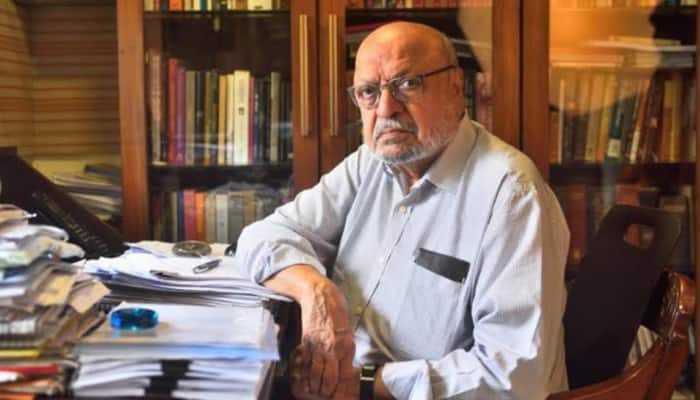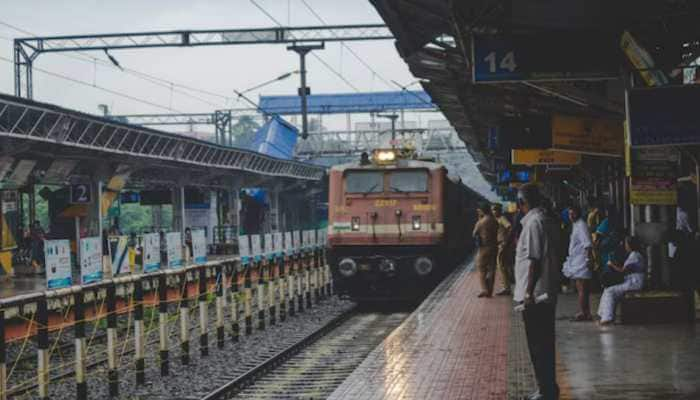National Deworming Day: 34 crore children to be administered deworming tablets today
On National Deworming Day, February 10, the Health Ministry for the first time will also cover private schools and has asked state governments to rope them in, while it has set up 210 monitoring centres across the country to tackle adverse reactions of the tablet like stomach ache and vomiting.
Trending Photos
)
New Delhi: In one of the country's largest single-day public health initiatives, an estimated 34 crore children will be administered de-worming tablets on Friday to reduce worm infestation that can stifle physical and intellectual growth.
On National Deworming Day, February 10, the Health Ministry for the first time will also cover private schools and has asked state governments to rope them in, while it has set up 210 monitoring centres across the country to tackle adverse reactions of the tablet like stomach ache and vomiting.
India has the highest burden of worm infections in the world, with the World Health Organization estimating in 2014 that over 22 crore Indian children aged between 1 and 14 years are at risk.
"Last year, an issue had been raised that the government has been deworming children only in government schools and left out the private schools. This year, we are trying to cover private schools also which means close to additional eight crore children. Since this is the first year, we may not have 100 per cent coverage in private schools.
"This is also going to be a single-day strategy. Across the country, albendazole tablet is in place for use. It is a safe drug and we have been using it year after year and all technical experts including WHO have certified the safety and efficacy of the drug," Union Health Secretary C K Mishra said.
The Health Ministry this year is working with the Department of School Education and Literacy and the Ministry of Women and Child Development.
He said that while 37 crore children under the age group of 1-19 years are to be administered the tablet, the Ministry this year has set a target of reaching 34 crore of them.
Mishra said that the ministry this time has completed the mapping in all states and depending on the worm load, it will be decided whether it will be an annual or biannual exercise.
"31 states and UTs will implement this programme in February 2017. The rest will do it in subsequent months. Three rounds (of deworming) we have already had. In one round in 2015 and two rounds in 2016, we have dewormed 40 crore children. This year alone, we are trying to reach that figure.
"Three new things which have critically come up this year are expanded coverage, inclusion of private schools and this decision is far more scientific based on the worm load study. This is an ambitious programme...Link it with open defecation free status. The more that (defecation free) happens, the less of worm infestation there will be," Mishra said.
Health Secretary Mishra said the idea is to reach out to all children across the country and provide them deworming tablets so that "we are able to make them worm-free".
"It has been proven that worm infestation prevents a child from coming to school, prevents the child from a healthy growth both intellectually and physically," he said.
Asked about complaints of stomach ache and vomiting among children reported from various states, Mishra said that any drug will have certain side effects and asserted that these were "manageable".
"Any drug will have some (side effects). I am told if the worm load is very very high, it creates a problem, there is vomiting, stomach ache etc. But these are all manageable things.
"Any drug, simplest of drug, if 10 people take, one may have a problem. But it has been proven to be safe and that is why we are going on a national level," he said.
Ministry officials said that to manage adverse drug reaction, the Indian Pharmacopoeia Commission is supporting and assisting in monitoring through the robust system of Pharmacovigilance Programme of India which has established 210 adverse drug reaction monitoring centres across the country.
If any adverse effect occurs, states are instructed to contact these centres and there is a toll free number as well.
The Ministry said that deworming may have very few side effects and some children, especially those with high worm infections, might experience nausea, mild abdominal pain, vomiting, diarrhoea and fatigue.
In line with the guidance from the Ministry, comprehensive adverse event protocols have been put in place.
Mishra said that Health Minister J P Nadda himself has taken several rounds of meetings to ensure that the programme reaches out to a larger number and a letter has been sent to every state.
He said that state governments have been requested to talk to the respective private school associations and ask them to join the programme.
As per WHO, 43 per cent of the global population and 64 per cent of the Indian population less than 14 years are at the risk of Soil Transmitted Helminths (STH) infection. The rate of open defecation, an important risk factor for STH transmission, is as high as 91 per cent in some areas and nationally it is 51 per cent.
According to the ministry which has done the STH mapping, the prevalence ranged from 85 per cent in Tamil Nadu to 12.5 per cent in Madhya Pradesh during 2015.
Stay informed on all the latest news, real-time breaking news updates, and follow all the important headlines in india news and world News on Zee News.
Live Tv







)
)
)
)
)
)
)
)
)
)
